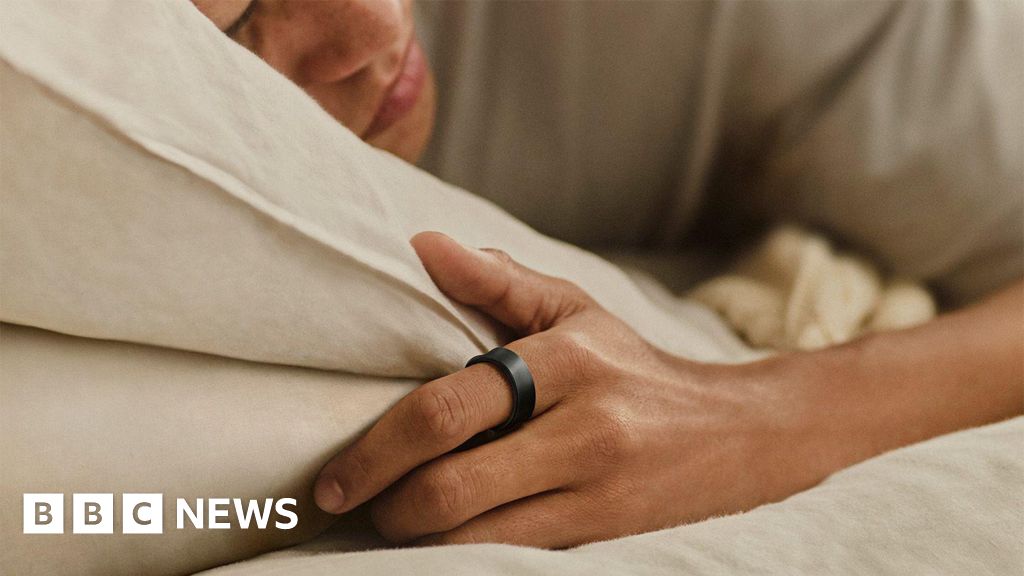- author, Liv McMahon & Imran Rahman-Jones
- role, Technology reporter
Samsung is hoping to attract fitness and health tracking technology enthusiasts with its latest wearable device, the Galaxy Ring.
The company announced the device at its Galaxy Unpacked event on Wednesday, and it’s the latest addition to an ecosystem of devices that the company says are “enhanced” with artificial intelligence (AI).
Smart rings, which use tiny sensors to monitor a range of health indicators, have previously been a niche product but have recently made headlines after being used by the England men’s football team.
Samsung appears set to change that by becoming the largest tech company to enter the smart ring market.
CCS Insight analyst Ben Wood said the product choice represents an “interesting bet” for Samsung, which predicts the global market will be about 4 million smart rings by 2025.
“This is marginal compared to the 250 million smartwatches that are also expected to be sold,” he told the BBC.
But some have suggested that Samsung could help make the smart ring more popular.
“For most consumers, the Samsung smart ring will be their first point of contact with a smart ring, and that top-of-mind awareness will make a big difference in the long run,” said Francisco Jeronimo, an analyst at market research firm IDC.
James Kitt, vice president and head of Samsung’s mobile division for the UK and Ireland, hailed the ring’s launch as a “big moment” for the company.
What is a Smart Ring?
The smart ring can track health metrics such as heart rate, sleep, and menstrual cycle.
Currently, this market is dominated by Finnish healthtech company Oura.
In recent years, the ring has become a fitness tech fashion staple for celebrities like Kim Kardashian.
Analysts say the small, sleek-looking device could be a successor to smartwatches like the Apple Watch or Google Pixel Watch.
Kitt called the Samsung Galaxy Ring “the smallest, most discreet device yet, providing precise 24/7 health, wellness and sleep tracking.”
Smartwatches typically have more sensors than smart rings and can access and provide a wider range of health data.
But Geronimo says a “non-intrusive” smart ring could be a convenient, comfortable and stylish alternative, especially for those who don’t want to wear a bulky smartwatch at night to track their sleep patterns.
The device will run on Samsung Galaxy smartphones with Android 11 and above and will be available in the UK on July 24th priced at £399.
Dr Evpraxia Zamani, associate professor of information systems at Durham University, told the BBC that the Samsung Galaxy Ring, which forms part of a wider ecosystem of products that provide insights into users’ health and wellbeing, could be a “compelling product” for many consumers.
But she warned that users of products that access and monitor health data should remain vigilant about what data is collected and how and where it is shared.
“Being part of an ecosystem means that data is collected from your ring, your watch and your phone, and when combined, it can have positive and even negative effects,” she said.
Collecting data on the menstrual cycle has been controversial in the past.


